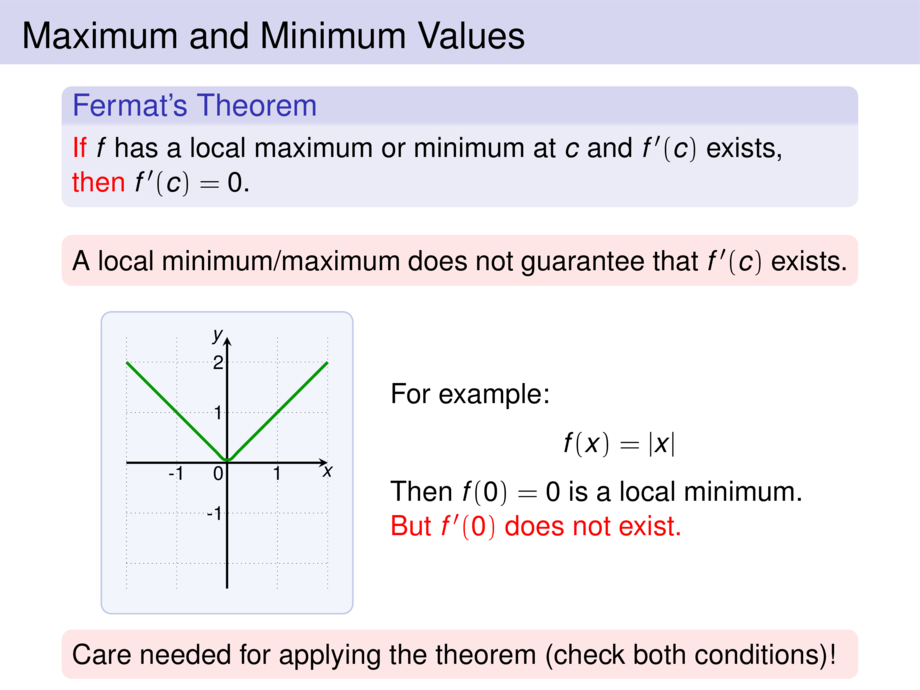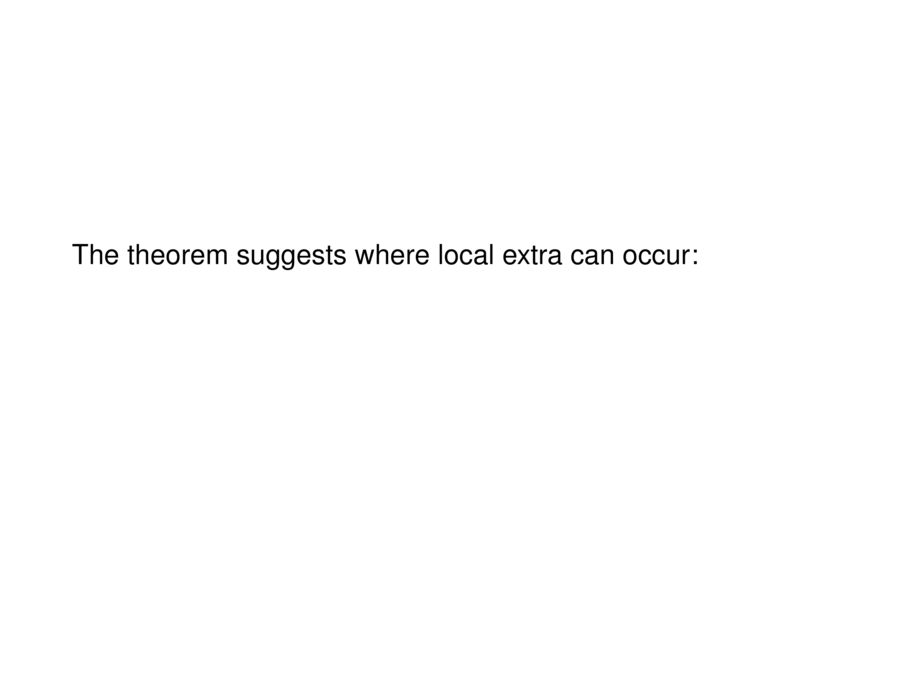



































































































106/209
\begin{frame}
\frametitle{Maximum and Minimum Values}
\begin{block}{Fermat's Theorem}
\alert{If} $f$ has a local maximum or minimum at $c$ and $f'(c)$ exists, \\
\alert{then} $f'(c) = 0$.
\end{block}
\pause\bigskip
The theorem suggests where local extra can occur:
\begin{itemize}
\pause
\item where $f'(c) = 0$, or
\pause
\item where $f'(c)$ does not exist.
\end{itemize}
\pause
\begin{block}{}
A \emph{critical number} of a function $f$ is a number $c$ in the domain of $f$
such that either $f'(c) = 0$, or $f'(c)$ does not exist.
\end{block}
\pause
\begin{exampleblock}{}
What are the critical numbers of $f(x) = x^{3/5}(5-x)$?
\pause
\begin{talign}
&f(x) = x^{3/5}(5-x) \mpause[1]{= 5x^{3/5} - x^{8/5}} \\
&\mpause[2]{f'(x) = }
\mpause[3]{\frac{3}{x^{2/5}} - \frac{8}{5}x^{3/5}}
\mpause[4]{= \frac{15}{5x^{2/5}} - \frac{8x}{5x^{2/5}}}
\mpause[5]{= \frac{15 - 8x}{5x^{2/5}}}
\end{talign}
\pause\pause\pause\pause\pause\pause
The critical numbers are $\frac{15}{8}$ ($f(c) = 0$) and $0$ ($f(c)$ does not exist)\hspace{-5ex}
\end{exampleblock}
\vspace{10cm}
\end{frame}

